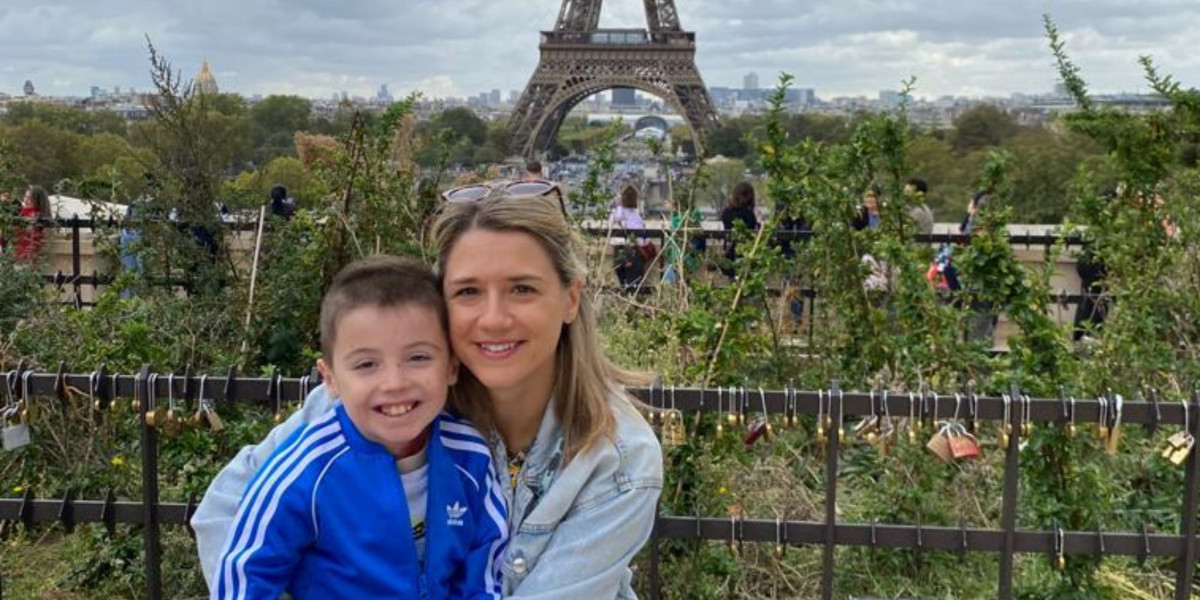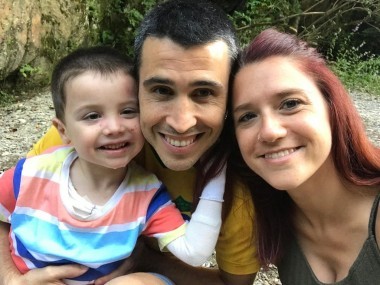
Marta Farré — Mother of a boy with epidermolysis bullosa

When Adrià was born, doctors noticed that he had severe wounds on his legs and feet. The gynaecologist who attended to them first mentioned the disease: epidermolysis bullosa (EB), a genetic condition also known as butterfly skin, as it primarily affects the skin. Due to a mutation, the skin is so fragile that blisters and wounds form very easily, often becoming chronic in many cases.
The subtype of EB that Adrià constantly causes blisters that leave wounds in the area, taking days to heal. His feet, oral cavity, and oesophagus are severely affected. In this subtype of EB, as in others, cures are crucial to face everyday life. Bandages, gauze, and dressings are part of the care routine.

Support from the moment of birth
Epidermolysis bullosa has a significant impact on the quality of life for affected individuals and their families due to its characteristics. This also has consequences on the emotional dimension. The Spanish patient association DEBRA Butterfly Skin (DEBRA Piel de Mariposa), aware of this fact, supports families from birth.
Marta participated in the ninth episode of our podcast La Ciencia de lo Singular, where we discussed how rare diseases affect the mental health of patients and their families, and how the psychological impact can be studied to minimise it. Marta shared how DEBRA was there from the beginning: "A few days after Adrià was born, a nurse and a psychologist from the association (Nora García) came to meet us at the hospital. From then on, DEBRA became a fundamental pillar in our lives."
Throughout Adrià's lifetime, the support has been ongoing, especially on a psychological level. "Nora (who also participated in the podcast episode) knows us like no one else and provides us with many tools to face the disease."
Marta explains that the development of Adrià's personality is greatly influenced by the disease, since he experiences chronic pain. Over this time, they have been on working Adrià's skills hand in hand with DEBRA: "Nora has helped us explain to him what his disease is, how to answer difficult questions like why he has the disease and we don't, why his friends don't have it either, why we have to cure him every day and why this causes him pain... We have used stories, videos... We also highlight what he can do, in which areas he is just like everyone else." DEBRA also collaborates with schools to facilitate the inclusion of children with butterfly skin.
In the case of epidermolysis bullosa, the family experiences a significant emotional impact, and the association also provides psychological support: "As parents, we are very different and have different ways of facing the situations that arise, and in this, Nora has helped us a lot. She emphasises our self-care. We have to be fine if we want to take care of Adrià."
The family has participated in various psychosocial studies aimed at understanding the burden of the disease on Adrià and the family. As we explained in the podcast, these studies help professionals make better decisions in healthcare and psychosocial aspects, and can guide the development of public health policies that address the real needs of those affected.
Looking for a cure
Epidermolysis bullosa is a genetic disease that currently has no cure, but in recent years, there has been significant progress in its research. We recently discussed a study that showed wound repair in nine EB patients through gene therapy. However, more studies are still needed, including testing this therapy on mucous membranes beyond the skin. It marks another step towards finding a cure for EB, a cure desired by many patients and families. Thanks to associations like DEBRA that drive research, we are learning more about the disease, bringing us closer to finding effective treatments.
